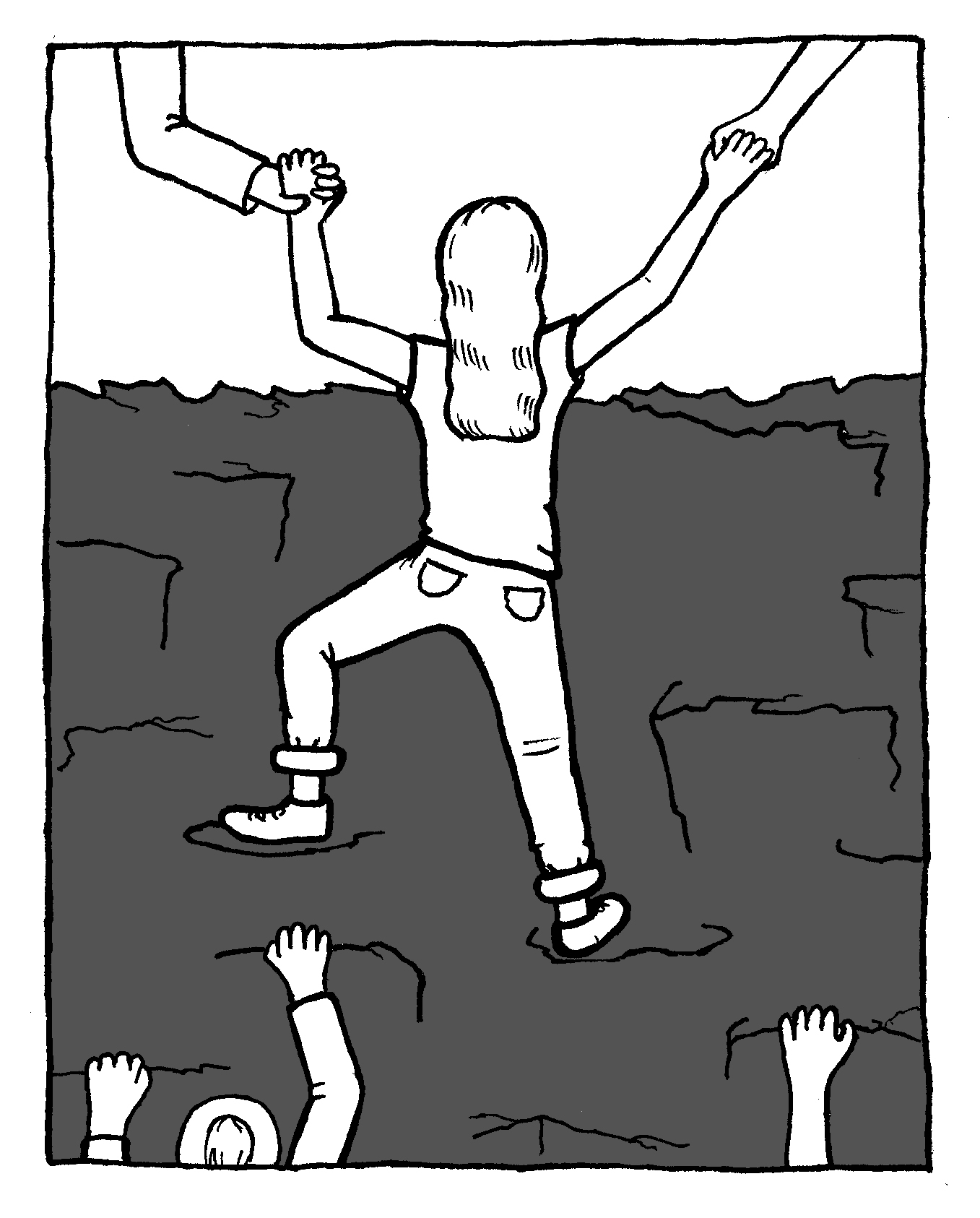Why I’m grateful for the sophomore slump
October 27, 2017
 This
piece represents the opinion of the author
.
This
piece represents the opinion of the author
.
I entered sophomore year a caricature. With sharpened angles and tunneled thoughts, I bore little resemblance to myself. A quick Google search let me know that I could eat at the Lobster Bake. It was only 129 calories for an entire lobster, minus the butter sauce, of course.
While what to eat seemed easy for once (except how exactly to properly crack a lobster), I found myself more anxious around my friends than the claw meat I was trying to free. I agonized over every piece of witty banter; every “What did you do this summer?” felt like an attack.
Freshman year of college is stereotypically idealized, and for many—myself included—it is the dream. Everything from your first-and-only Pub Night to your first Ivies is thrilling, or at the very least brand new (the most calls home must certainly come from the laundry room). My strongest Bowdoin memory is still a timid game of Cards Against Humanity, played while sitting cross-legged on the bare linoleum of my unfamiliar Hyde quint. I swapped cards and names with new floormates, and every moment of college seemed charged with possibility.
While it’s fun ordering an in-house coffee for your first all-nighter, it’s less so for your tenth.
Sophomore slump hits hard. Signifying the end of the honeymoon phase of college, it may manifest itself as a loss of concentration on school work, a disinterest in campus life or a sudden realization that every College House party is identical. While symptoms may vary, and so too can the timing, this dissatisfaction doesn’t just occur during sophomore year. The vital part is the treatment method for these feelings of malaise.
One of my favorite quotes comes from a Humans of New York (HONY) post. In response to the question, “If you could give one piece of advice to a large group of people, what would it be?” a New Yorker answers, “Try your best to deal with life without medicating yourself.”
“You mean drugs?” HONY asks.
“I mean drugs, food, shopping, money, whatever. I ain’t judging anybody, either. I was hooked on heroin for years. But now I’ve learned that every feeling will pass if you give it time. And if you learn to deal with your feelings, they’ll pass by faster each time. So don’t rush to cover them up, or you’re never gonna learn.”
College is stressful, erratic and, at times, lonely. Life is, too. Sophomore year, I adopted an unhealthy coping mechanism to escape these uncomfortable feelings that are inevitable to growing up. I attempted to protect myself by using food and exercise to try to gain control over at least a portion of my life.
Even worse, when I withdrew into myself as a result, I magnified the problem. From afar, I wistfully viewed the gatherings that I abstained from so as not to burden all my friends, who must have certainly been having their best semesters.
I don’t blame myself for thinking everyone else had everything under control. A Baxter housemate once shared that, “Everyone at Bowdoin are like ducks on a pond. While they may seem to be floating gracefully, beneath the surface we are all paddling to stay afloat.”
We are all told that college is the best four years of our lives, so it may seem like you’re failing when this isn’t panning out. I struggled for an entire semester more than I needed to because I was too proud to admit that I needed help—something I now realize is akin to never going to office hours because you’re embarrassed that you have questions.
When I finally did make an appointment with the Counseling Service and revealed it to my friends, I was shocked by their reaction. Not only did they not think less of me, but several shared that they had also made appointments for various reasons, whether anxiety, depression or an eating disorder.
We need more transparency at Bowdoin. By putting on a brave face I hurt myself more—and for longer. I also gave up a possibility to help others through my struggle. Every time I falsely answered, “Good! And you?” I may have further isolated others undergoing similar problems.
I’m very grateful to consider myself recovered, but there will always be bad days. However, I’m not embarrassed to admit this anymore: though I may slump, I keep my head held high.


Comments
Before submitting a comment, please review our comment policy. Some key points from the policy: